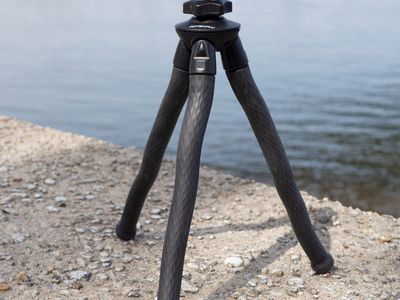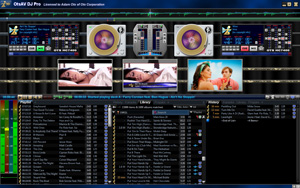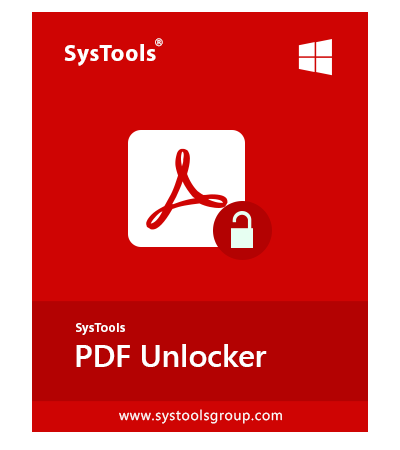
In-Depth Review: Assessing the Dual Efficiency of Netgear's Cable Modem and Wireless Router (C3700)

Unleashing Power and Efficiency: The All-New 202N MacBook Pro with the M1 Processor Reviewed
4.9
Apple MacBook Pro 13-inch (M1, 2020)
:max_bytes(150000):strip_icc():format(webp)/Macbook_Pro_M1_2020_04-4d24391cc1a74240a35da5017f4f6a79.jpg)
Alice Newcome-Beill / Lifewire
What We Like
- Extensive battery life
- Excellent value
- Incredible performance with new M1 chip
- Touchpad and keyboard feel great
What We Don’t Like
- No touchscreen
- Just two USB-C ports
- Base model could use a little more storage
It may not be revolutionary, but the M1 chip in the latest version of the MacBook Pro represents a significant evolution in Apple’s capabilities, matching and often surpassing the performance of competing ultrabooks.
4.9
Apple MacBook Pro 13-inch (M1, 2020)
:max_bytes(150000):strip_icc():format(webp)/Macbook_Pro_M1_2020_04-4d24391cc1a74240a35da5017f4f6a79.jpg)
Alice Newcome-Beill / Lifewire
in this article
Expand
- Design
- Keyboard
- Touchpad
- Display
- Performance
- Battery
- Software
- Price
- Apple MacBook Pro (M1) vs. HP Spectre x360
- Final Verdict
- Specs
We purchased the MacBook Pro so our reviewer could test out the laptop. Keep reading for our full product review. “
Occasionally, Apple surprises us with aMacBook form factor that breaks with tradition: this is not that year. However, despite the lack of physical changes, this year’s iteration of the MacBook Pro 13-inch (M1) may represent the most substantial leap in their hardware in years thanks to the new M1 chip. This year Apple has gone with their own trademark silicon instead of relying on third-party CPUs from Intel.
Apart from opening the door to running apps natively on the MacOS, this also adds a surprising amount of speed and makes the new MacBook Pro a game-changer in the world of high-poweredlaptops . Along with its superior performance, you get an impressive battery life and the great-feeling keyboard and touchpad you’ve come to expect from Apple. The overall performance blew me away during my weeks of testing.
:max_bytes(150000):strip_icc():format(webp)/Macbook-Pro_1M1_2020_03-d4cbb9b7ef82466fa52ba32c1244fc78.jpg)
Alice Newcome-Beill / Lifewire
Design: If it ain’t broke
Apple has changed very little in terms of aesthetics, keeping all the substantial changes relegated under the hood this year. The measurements from theprevious generation 13-inch MacBook Pro remain virtually unchanged, measuring a modest 0.6x12x8.5 inches (HWD) and weighing in at 3 pounds. It’s just light enough that you can confidently carry it while open from room to room when life inevitably makes an impromptu appearance on your Zoom meeting.
In addition to the vast array of improvements, this year’s model addresses many of the lingering complaints people have had about the MacBook Pro for years. This MacBook Pro relies on a heat sink and passive cooling, just like the iPad, which has the added benefit of addressing one of the long-standing problems of noise by quieting the laptop even while under load. Impressively, it didn’t run hot even under load, but more on that below.
The MacBook Pro features two Thunderbolt/USB 4 ports that support charging, DisplayPort, Thunderbolt 3, and USB 3.1 Gen 2. If you want additional slots like an SD card reader of USB ports, you’ll need to use a USB-C hub.
Keyboard: A great typing and productivity experience
If you’ve used a MacBook keyboard recently, you’ll know what to expect here as they still use the scissor-type switches. The keys are a backlit chiclet-style design with low travel distance. I initially thought that the keyboard might be too crowded, and while making the leap from a17-inch laptop layout to a 13-inch initially seemed pretty drastic, my fingers quickly acclimated to the smaller layout without too many missteps.
One key addition is so small that you’d miss it unless the touch bar deliberately pointed it out when you needed to log in. That is the new fingerprint sensor planted on the top-right corner of the keyboard that allows you to quickly log in, or use Apple Pay without the need for a password. While the functionality ends there, it does thankfully work quite well. I never encountered any issues trying to get the scanner to read, and using it quickly became second nature.
:max_bytes(150000):strip_icc():format(webp)/Macbook_Pro_M1_2020_02-a8fa9e03fafd477fb2423dfa9453b1bb.jpg)
Alice Newcome-Beill / Lifewire
Touchpad: A soft touch
While it didn’t feel mushy, the “barely-there” haptic response on the touchpad initially left me wishing for something a little punchier. But Apple has done quite a bit more than just provide us with a large singular button here.
Certainly not a new addition by any means, but the multi-point, pressure-sensitive trackpad paves the way for some interesting tricks that would otherwise be impossible. For example, bringing your fingers to a point and spreading them out in a starburst pattern causes all of your windows to be cleverly pushed aside, revealing the desktop. Pinch those fingers inward again and all the windows return to their original position. The gestures do take a little getting used to, but once you’ve mastered them, you’ll wonder how you ever lived without them.
At the end of the day, this functionality gives you a reason to use the touchpad as your first choice, rather than just constantly wishing you had a mouse or trackball close at hand.
The display can hit an impressive 500 nits of brightness, features rich, accurate colors, and great viewing angles.
Display: Here’s looking at you
Apple continues to deliver with its 13-inch 2560x1600 Retina display, but this time with the True Tone technology that premiered on the 9.7-inch iPad Pro and has been present onevery generation since. This interesting bit of tech uses four different sensors to automatically adjust the white balance on your display based on your current lighting environment. This technology isn’t about increasing resolution and cramming in more pixels per inch, but sharpening color clarity and accuracy to a razor’s edge to provide the truest image possible.
The display can hit an impressive 500 nits of brightness, features rich, accurate colors, and great viewing angles. Another noteworthy improvement is the remarkably slim bezel on the 13-inch display, which lends a slick futuristic look to the laptop and gives you just a little more usable real-estate on your screen without increasing the size of the device itself.
:max_bytes(150000):strip_icc():format(webp)/Macbook_Pro_M1_2020_05-10007afca69547238297d4135852b975.jpg)
Alice Newcome-Beill / Lifewire
Performance: Get up and go
As a lifelong PC user and Mac skeptic, I was continually astounded with the whip-smart responsiveness and performance of Apple’s new laptop. The model I tested had 16GB RAM and a 2TB SSD, giving me plenty of storage and RAM for multitasking and productivity, but there are cheaper configurations available.
There are a number of noteworthy improvements under the hood however that make this MacBook worth talking about, most notably, Apple’s new M1 processor. With its 8 cores, it has speeds that surpass most conventionalultrabooks . This is all the more impressive considering that this is the first MacBook that doesn’t use a third-party CPU.
While gaming is hardly the first thing that comes to mind when purchasing a MacBook, I was surprised to find the MacBook more than holding its own in gaming benchmarks, matching or exceeding the performance offered by many Windows ultrabooks like the HP Spectre x360. I was able to run Starcraft 2 on medium settings without any noticeable hitches or frame rate drops.
This year’s MacBook represents the best value we’ve seen in an Apple laptop for some time.
If you’re curious about the metrics, we’ve included a breakdown that shows how the new MacBook Pro stacks up against an HP Spectre x360 configuration of a similar price in terms of processing performance using Geekbench 5.
HP x360 Spectre Convertible 15
- Single Core: 1060
- Multi-Core: 4716
- OpenCL Compute: 21703
MacBook Pro 13-inch (M1)
- Single Core: 1720
- Multi-Core: 7552
- OpenCL:19421
The Spectre x360 does have a small leg up thanks to its dedicated GPU, but in terms of raw processing power and speed, the MacBook Pro with the M1 chip is the laptop to beat.
This shift represents an effort on the part of Apple to prove that it can once again innovate in the realm of computing now that it has more control over the overall architecture being used in its systems. While this new silicon boasts some truly impressive boosts to performance overall, there is a small drawback in that some apps that you lean on for productivity may not be fully optimized to work with the M1, even with the improvements brought by Big Sur.
Battery: This fruit has juice
Another of the more noticeable improvements to the MacBook Pro is the extended battery life. I’m happy to report that in my testing, running a4K movie at maximum brightness on loop, it took the MacBook a little over 18 hours to deplete its charge. This makes Apple’s latest laptop one of the best laptops for battery life currently available. What’s even more amazing is how quickly it can be topped off. From being completely drained, we were able to boot up and get fully charged using the included adapter in just under an hour and a half.
I was surprised to find the MacBook more than holding its own in gaming benchmarks, matching or exceeding the performance offered by many Windows ultrabooks like the HP Spectre x360.
Software: Big Sur optimized better than ever
The M1 chip also allows the MacBook to run apps that are normally reserved for iPadOS. While this doesn’t necessarily sound all that exciting on paper, it does open up some interesting possibilities. This greatly expands the software library available to theMacOS and helps to corral all of Apple’s hardware into a singular ecosystem.
The new MacBook can still use applications built on the Intel x86 architecture like Slack and Chrome through the built-in Rosetta 2 emulator almost seamlessly. Of course, it isn’t quite as fast as native applications, but any slowdown is hardly noticeable.
Price: A bargain at twice the price
Starting at $1,299, going all the way up to $2,300 for the highest-end configuration, the MacBook Pro with the M1 processor offers incredible value. By comparison, a 13-inch MacBook that uses a 10th gen intel processor costs roughly $400 more and can’t really match the performance offered by the M1 CPU. Adopting this new hardware also seems to have cut away much of the premium we see associated with Apple products, achieving price parity with many of the ultrabooks outside of the Apple ecosystem.
For instance, an HP x360 Spectre with a similar performance configuration will cost around the same as an M1 MacBook. This isn’t carte blanche to just bin the MacBook you bought last year but this year’s MacBook represents the best value we’ve seen in an Apple laptop for some time.
:max_bytes(150000):strip_icc():format(webp)/Macbook_Pro_M1_2020_04-4d24391cc1a74240a35da5017f4f6a79.jpg)
Alice Newcome-Beill / Lifewire
Apple MacBook Pro (M1) vs. HP Spectre x360
The HP Spectre x360 does offer slightly more flexibility at a similar price point, thanks to Windows. But even the latest 10th Gen i7 Intel processors really can’t match the performance of the new Apple CPUs. The x360 is a slightly more robust machine, in terms of both size and hardware, incorporating more RAM, more storage, and a beefier GPU for better gaming performance. Unfortunately, the extra hardware makes the x360 much heavier, as well as making it run substantially warmer and louder when under load. The extra hardware is also more demanding of the battery, giving the x360 a drastically reduced battery life when compared to the MacBook Pro.
The new MacBook Pro, on the other hand, has plenty to love, especially for anyone thoroughly invested in the Apple ecosystem. While the M1 chip is easily the biggest selling point, the TrueTone display, TouchID sensor, and drastically improved thermal performance and battery life are just icing on the cake. However, it’s a bit disappointing to see such a shortage of connectivity options when compared to the array of ports available on the Spectre x360. HP includes everything from a microSD card slot to an HDMI port, but the MacBook Pro only has a pair of USB-C connections, pretty much forcing you to use an external USB-C hub unless you’re keen to constantly swap out cables.
Ultimately, if you’re a legacy MacBook owner and have no intention of changing, then now is an ideal time to upgrade to the latest iteration of the 13-inch MacBook Pro. However, if you’re willing to change ecosystems (not many people are) The HP Spectre x360 is a slightly more versatile option that’s available for around the same price.
HP Spectre x360 15t Touch Laptop Review
Still need some more time before making a decision? See our guide to thebest laptops.
Final Verdict
A powerful new CPU changes the game.
With the smattering of performance improvements that Apple has brought to the table this year, it begs the question, should you upgrade? While there are some significant changes to last year’s model, you won’t be missing out on much if you’ve bought a new MacBook in the past year or two. However, if you’ve been biding your time for several generations, waiting for a substantial upgrade for your MacBook Pro, we can unequivocally say that the time is now.
Similar Products We’ve Reviewed
Specs
- Product Name MacBook Pro 13-inch (M1, 2020)
- Product Brand Apple
- UPC APZ11BMYD808
- Price $1,299.00
- Release Date November 2020
- Product Dimensions 0.61 x 11.97 x 8.36 in.
- Color Space Gray
- Warranty 90-day tech support, 1-year limited warranty
- Platform MacOS
- Processor Apple M1 CPU
- RAM 16GB
- Storage 2TB SSD
- Camera 720p FaceTime HD
- Battery Capacity 58.2 Wh
- Ports 2x Thunderbolt 4 (USB-C), 3.5mm headphone jack
- Title: In-Depth Review: Assessing the Dual Efficiency of Netgear's Cable Modem and Wireless Router (C3700)
- Author: Scott
- Created at : 2024-08-03 23:03:58
- Updated at : 2024-08-04 23:03:58
- Link: https://buynow-info.techidaily.com/in-depth-review-assessing-the-dual-efficiency-of-netgears-cable-modem-and-wireless-router-c3700/
- License: This work is licensed under CC BY-NC-SA 4.0.



 OtsAV DJ Pro
OtsAV DJ Pro